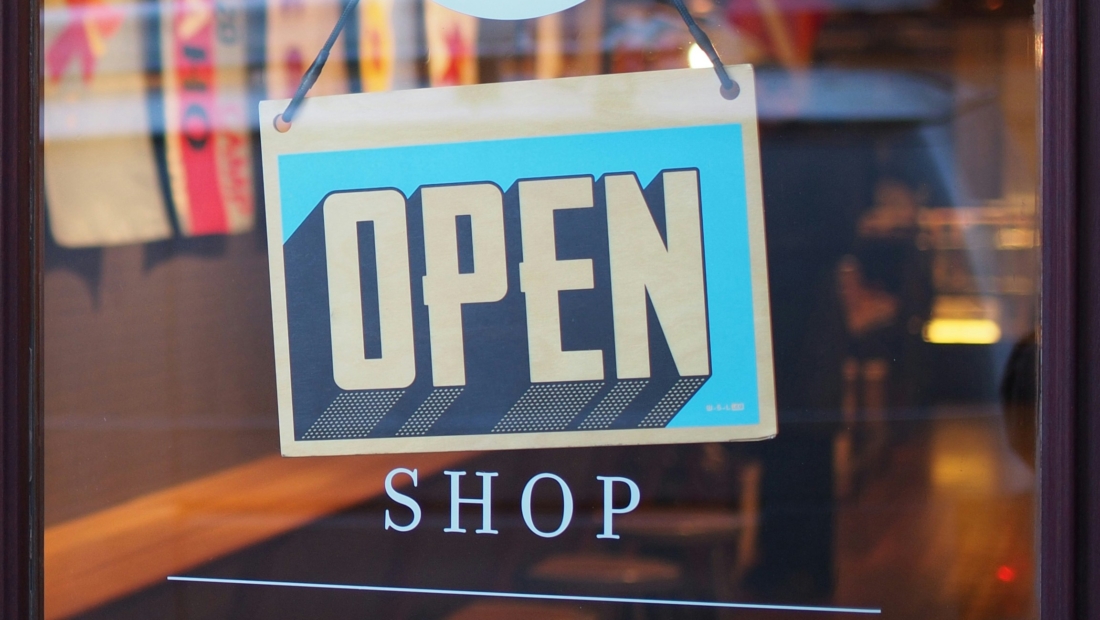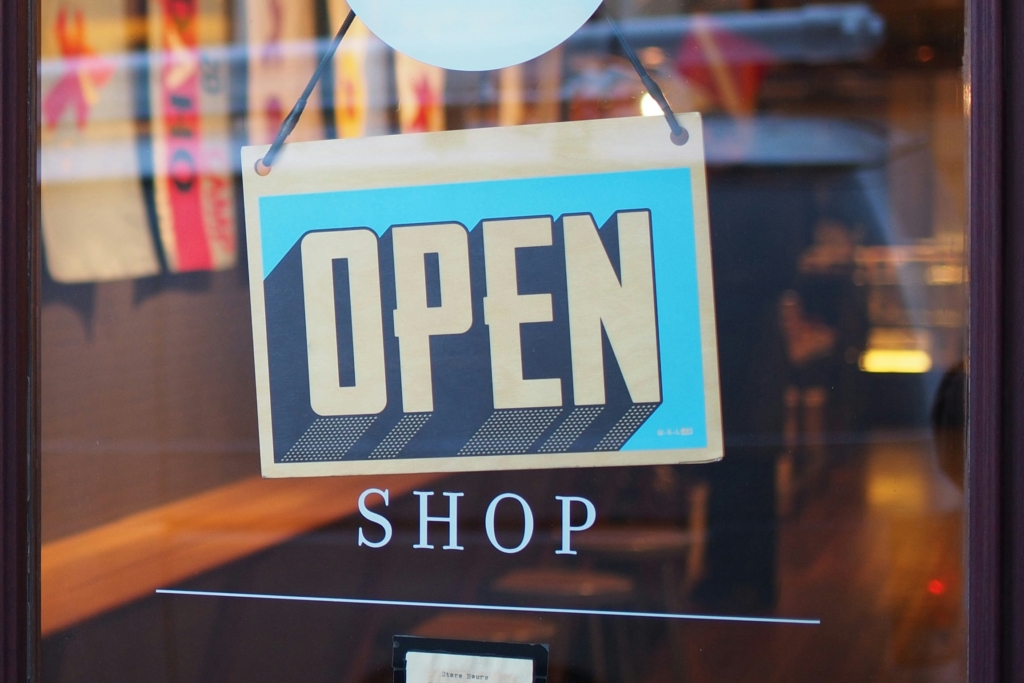What’s The Credit Score Needed For Small Business Loans?

Build strong business credit
with your EIN

With the right funding, you’re ready to take on all the goals you’ve set for your business. It’d be helpful if you get it, but you’re probably wondering what credit score you need to get a small business loan.
In this article, we’ll cover the different types of business loans and the credit expectations for each.
Credit Score Requirement By Business Loan Type
There are a few different options when it comes to small business loans. Not all of them require you to build business credit first, but they will have personal credit score standards to meet. It’s important to make sure your credit score is in the best place to get the loan you want.
As a rule of thumb, the better your credit score is, the better interest rates and terms you’ll get. Keep in mind your credit score isn’t the only determining factor here. You’ll also need to show profits, how long you’ve been in business, and a few other pieces we’ll get into later.
SBA Loans
The SBA offers some of the most diverse small business loans. The Small Business Administration doesn’t state a minimum personal credit score for their loans. The trick is, the loan providers/lenders they work with do.
On average, the minimum score accepted by an SBA loan provider is 620 to 640. While personal credit score minimums are determined by lenders, the SBA has a minimum FICO SBSS business credit score requirement of 155 for their 7(a) and community advantage loans.
The SBA provides all kinds of loans for small businesses. Those loan amounts can reach up to $5.5 million depending on the loan type.
The interest rates are traditionally low compared to other options. There are also repayment terms ranging from 5 to 25 years depending on the loan you choose.
SBA loans are great financing options that work for almost any business purpose. Use a 7(a) loan to fund supplies and equipment. A 504 loan provides financing to purchase commercial real estate. EIDLs help you bounce back from the effects of a natural disaster or crisis.
Banks and Credit Union Loans
Traditional lenders, like banks and credit unions, are more conservative with the credit scores they allow. This conservative method keeps them from losing money on defaulted loans and credit lines.
So the cost of their loans is much cheaper. That means more money in your pocket.
Small business financing through a bank or credit union is best for more established small businesses. Most times they require you to have been in business for a while. For example, TD Bank requires at least two years in business for their loans and business lines.
Traditional lenders offer some of the best term loans. They have very attractive interest rates and longer repayment periods. Bonus points if you’re planning to put your loan application in at your home bank. Many times they’ll use your good banking history to justify approving the loan.
You’ll still have to meet rigid credit criteria with a personal credit score in the high 600s. It might even be helpful to boost your personal credit score into the low 700s to get approved.
Pair that with solid annual revenues, consistent profits, and a personal guarantee for the best outcome. They often like to see a good business credit score too.
Equipment Financing
Is the financing going towards the purchase of new business equipment? If so, equipment financing is an option available to you. The same way an auto loan is secured by a purchased vehicle, this type of loan uses the equipment you purchase as collateral.
Similar to most secured term loans, interest rates are relatively low because it’s a much lower risk for the financial institution. You can usually find these directly through manufacturers. There are some third-party lenders offering equipment financing too.
You should expect to pay more in interest on these loans if you have bad credit. In some cases, you may need a down payment as well. Having poor credit can be costly. The required down payment typically gets higher the further you are into bad credit territory.
There’s no set minimum credit score for equipment financing, but lenders prefer to see a score above 600 at the very least. To get the best odds, you should be closer towards the 650-700 range.
In addition to your personal credit score, lenders will also assess your cash flow, credit history, financial statements, and business credit.
Online Lenders
Online lenders are one of the fastest-growing business financing options. They’re super accessible and offer benefits you don’t find with traditional lenders, such as:
- Simple loan applications
- As little as 24-hour turnaround on approvals
- Fast funding (in as little as 48 hours)
- Lower credit requirements
Unfortunately, alternative lenders often hand out interest rates higher than your average credit card with some as high as 35% APR. And potentially worse if you have bad credit. Still, the fast access to funding is worth the risk to some small business owners.
Unlike an SBA loan or bank loan, online lenders aren’t giving you high loan amounts and long repayment terms. Instead, they offer short-term loans. Usually with a repayment period of anywhere from three to 18 months.
While they have more relaxed eligibility requirements, it doesn’t mean you shouldn’t save yourself the extra interest payments by bringing a good credit score to the table. Credit still matters here.
Online lenders like Fora Financial and Credibly have a minimum credit score of 500. To get approved, you’ll still need to support your loan application with strong gross sales, bank statements, and a credit history clear of bankruptcies or judgments.

Do Lenders Look At Both Personal and Business Credit Scores?
Yes, they do look at both personal and business credit scores.
Even though they look at both, lenders sometimes put more weight on your personal credit score. Why? Because most small businesses’ finances are tightly connected to those of their owner and many small businesses don’t have business credit at all.
Online lenders typically place more weight on your personal credit score and the revenues from the business to decide on your small business loan. Meanwhile, traditional lenders are more likely to look at both your personal and business credit scores.
According to a recent survey by business financing company Nav, 45% of small business owners don’t even know that their business has credit scores. If the lender that you’re trying to get financing from wants to see a good business credit score, then that’s really important to know!
Many lenders don’t require a business credit score to qualify for a loan or business credit card.
But good business credit scores are required if:
- You want to get business financing without a personal guarantee
- You don’t want your personal credit to be affected by what your business borrows
- You want more financing applications approved at higher amounts with better rates
Many of the best loans and credit cards require good business credit to obtain. Even if your business doesn’t need financing right now, it’s still worth it to invest the resources to build your business credit for the future.
Why Do Lenders Look for a Good Credit Score?
Lenders aren’t looking to lend out money because it’s fun. They lend money out because they’re expecting to be repaid in full, plus interest. It’s how they bring in profits to their company.
It’s in their best interests to make sure the borrowers they’re lending to can afford to repay the loan. Otherwise, they’d be stuck with a bunch of bad debts. Your credit score is used as one of many indicators for your risk of defaulting on credit obligations.
If you have excellent credit, you pose a much lower risk of not repaying than someone with a bad credit score. Many times bad credit comes with added interest, down payments, and other concessions that borrowers with good credit don’t have to worry about.
Do you have bad credit? Do you also need financing to get your business off the ground?
You don’t have to settle for high-interest rates and less-than-great loan terms. Build your personal credit score with a top-rated credit builder loan from Credit Strong!
A credit-builder account helps you establish good credit history through regular payments on a secured installment loan. The best parts?
- You save money and build credit
- Your payment history is reported to the major credit bureaus
- No credit check
- No termination fee
- Free monthly FICO score
It’s not just for your personal credit either. Credit Strong also offers business credit builder loans to help your business build credit responsibly. Your monthly payments get reported to the major business credit bureaus and you can view your business credit report to keep track.
Go from bad credit to good credit in no time. By getting a Credit Strong credit-builder account, you can start taking control of your credit today!
Can You Still Qualify If You Don’t Have A Good Credit Score?
Even without a personal credit score in the 700s, you might still be able to qualify for an SBA or bank loan for small businesses. Many lenders require a minimum credit score of at least 500 to qualify for their financing products. To give yourself the best chances, you’ll want to be at a 640 or higher.
Just because you can qualify with a bad credit score doesn’t mean you’ll want the loan terms you’re offered. Like we mentioned earlier, when you get a loan with bad credit, you could be subjecting yourself to sky-high interest rates and loan terms you’d rather avoid.
Your best bet is to try and improve your credit first and then look for loan options. If getting financing can’t wait, then you’ll have to look for alternative financing options.
Merchant cash advances are a high-cost financing option with loan amounts based on your business revenues. The funding amounts can range from $5000 to $500,000 and decisions can be made very quickly in at least 24 hours.
Other bad credit business financing could look like business credit cards, vendor financing, or personal loans.
Other Things Lenders Look For
Your credit score is just one piece of the puzzle for lenders. While working on your credit is important, it’s equally important to have a profitable business and solid financials to show for it at least. Some other things lenders will look for are:
- Time in business
- Monthly/annual sales revenue
- Cash flow
- Industry
- Assets that can used as collateral
The time in business requirements varies from bank to bank. Some have a minimum of six months while more conservative lenders require two or three years. Brand new small business owners might have a harder time finding funding until they’re more established.
Sales revenue and bank deposits are key ways for lenders to see if you have the ability to repay the loan. In some cases, they might even ask you to verify this even further with financial statements or tax returns.
What does your industry have to do with financing? A lot. For lenders, it gives them an idea of how much risk they’ll take on by borrowing to you.
Lenders also get to choose which industries they work with. If your business is in one of these industries, finding a lender to approve financing might be very difficult:
- Gambling
- Money Service Businesses (MSB)
- Adult entertainment
- Firearm sales
- Cannabis dispensaries
- Astrology/ Fortune-telling/ Horoscopes
- Real estate investing
Most banks and financial institutions avoid these industries because they’re riskier or they simply don’t align with the company’s morals.
Most lenders are upfront about their industry restrictions and will typically have them listed on their website. It’s smart to check that list before submitting your loan application. It’s helpful to know which industry code your business has (NAICS or SIC code) when asking about this.
Last but not least, lenders take collateral into account. If the business doesn’t work out the way you’d hoped, or you’re unable to pay back the loan, the collateral can be used to fulfill your repayment obligations.
Equipment and real estate are used to secure a business loan, which makes it much less of a risk for lenders to take on. When loans are collateralized, you’ll likely see lower interest rates than an unsecured loan.

FAQs
Can You Get an SBA Loan With a 500 Credit Score?
The SBA doesn’t have an official minimum credit score for their loans. The lenders they work with tend to impose their own credit criteria. Most SBA loans would need a score of at least 640 to 680 for the best approval odds.
Some exceptions to that would be the EIDL, which has a minimum credit score in the high 500s, and the SBA microloan, which caters to people with little to no credit.
Some SBA loans require that you have a minimum FICO SBSS score (business credit score) of 155.
If you’re going for the microloan, you’ll need to have a strong business plan and cash flow projections.
Can I Get a Business Loan With a 600 Credit Score?
Yes, you can get a business loan with a 600 credit score. However, you may have to use alternative lenders. Online lenders would be the best to work with since their credit eligibility requirements are lower than traditional lenders who like to see scores close to 680 and up.
Can I Get a Business Loan With No Income?
It’s difficult for lenders to justify lending money to a business with no income. Remember – they want to get their money back. If there’s no cash available to repay the loan, it’s unlikely you’ll get an approval without offering something extra.
You need money so you look for financing options and you need financing so you can make money. In the meantime, you’re stuck without income. You’re between a rock and a hard place, so what are your options?
You could go for a collateral secured business loan. If you already have equipment or property under the business, you could use those to secure financing. You’ll need to pair that with an excellent credit score to get approved for the funding you need.
CreditStrong for Business is the only 0% interest business credit builder in the nation
